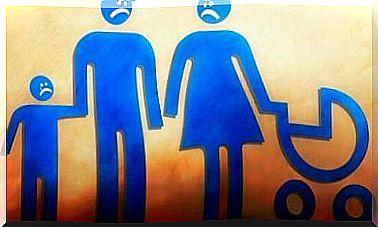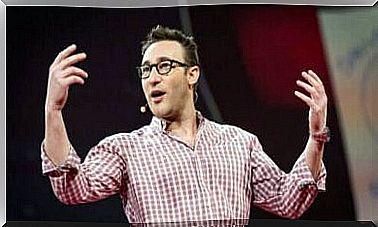Russ Harris On Getting Relationships To Work

Russ Harris is part of a group of psychotherapists using the Acceptance and Commitment Therapy (ACT) approach. Harris is of British descent and is one of the most famous ACT specialists. He does individual treatment and couples therapy when emotions run high and things are challenging. Today we will share his theories on how we can make relationships work.
Russ Harris is the author of one of the best-selling self-help books, called The Happiness Trap. He also has several other successful books, including ACT With Love . This article will focus on his main ideas on relationships and conflict management using the guiding principles of ACT.
The challenges of being in a romantic relationship according to Russ Harris
Relationships have their ups and downs. One day you may feel amazing with your better half, and suddenly everything is awful. The biggest challenge is usually dealing with each other’s feelings.
Emotions naturally vary. In the beginning of a relationship, emotions tend to focus on the care and preservation of your partner. Once the relationship is established, however, the intensity of these pleasant feelings decreases somewhat.

In summary, relationships can lead to certain unpleasant feelings that can come as a surprise when you experience it for the first time. Many of us grew up with the idea that our partners would meet all our needs and meet all our expectations, and the fact that they do not can cause some anxiety. This vicious cycle causes you and your partner to focus more on what your partner is doing for you instead of thinking about how they are positively contributing to the relationship.
You begin to pay more attention to the needs that are not being met instead of the expectations that your partner is meeting.
Couples are also negatively affected by some popular myths that society feeds. These are false beliefs that affect people’s expectations of their partners. They can also inform your ideas about what roles each person should play and what you should get from the relationship. Here are some of the most significant myths:
The perfect partner
There is an idea that if you search hard enough, you will find your “ideal” partner. The person who meets all your needs at the expense of their own. This message is everywhere: books, romantic movies and even fairy tales. If you internalize this message, you will struggle to have a healthy relationship.
Beliefs about how a relationship should be and how your partner should act often collide with reality. Such unrealistic expectations can actually have the opposite effect on your relationship and bring out all the partners’ mistakes.
Soulmates
It’s another popular idea that we are not born whole, and that our “other half” is floating around out there waiting to be found. How many love songs complain that “without you I am nothing”?
The problem with that idea is that it puts the responsibility for your needs and happiness on the other person. In addition, this leads some to believe that a relationship is about making up for the partner’s mistakes. This idea is counterproductive to make relationships work.
Instead of nurturing your relationship, ideas like these can make you addicted and afraid of being alone. None of these are the basis for a solid relationship.
Love is easy and lasts forever
Making relationships work is always easy in the beginning. Over time, however, the differences between you and your partner become apparent. In today’s jargon, we call these “incompatibilities”.
The idea of being incompatible with your partner takes us back to the concept of “the perfect partner”. If you feel that you are incompatible with your partner, it is difficult to feel happy and committed. If you want your relationship to survive, you need understanding, participation and intimacy. You must be willing to compromise. Accepting their differences is crucial so that they do not become a weapon you use against your partner in times of crisis.
To make relationships work with mental flexibility
Russ Harris uses the term “mental flexibility” when talking about romantic relationships. This term refers to being open-minded in your daily life with your partner. It involves trying to stay in touch with the present moment so that you can effectively nurture your relationship.
Greater mental flexibility helps with many conflicts that arise with your partner. Here are some examples:
- To acknowledge and accept individual differences between the two of you.
- Distancing yourself from the differences that are most likely to cause conflict. That way, you can make decisions together in the face of incompatibility issues.
- Adjust your expectations of each other and the relationship, especially ideas of “the perfect partner” that often lead to quarrels.
- Focus on the experiences you have in the present. Prioritize the interactions you have here and now. Stop dwelling on things that have already happened, and do not get excited about the future.
- Reduce the impact of unpleasant thoughts and feelings that get in the way of strengthening your bond with your partner.

Who is Russ Harris’ book for?
Here are some of the potential readers Russ Harris believes may benefit from his book:
- Couples who want to enrich their relationship.
- People who have difficulty getting relationships to work and who want to learn from the exercises the book offers.
- Those who are not in a relationship at the moment, but who want to be better prepared for the future.
- Professional psychologists looking for ideas for couples therapy.
The book gives a summary of the different uses for acceptance and commitment therapy and how you can integrate it into your relationship. At the end of each chapter, he shares a series of activities for couples and therapists who want to put the theory into practice.
However, no book is a cure. Russ Harris writes about theoretical concepts and techniques to improve your romantic relationship. Some of these strategies may work for you, while others may not. It depends a lot on the quality of your relationship and what stage you are in with your partner. Therefore, Harris normalizes marital breakdown as just another type of relationship process. This is another reason why we recommend that any type of intervention be monitored by an experienced specialist.









